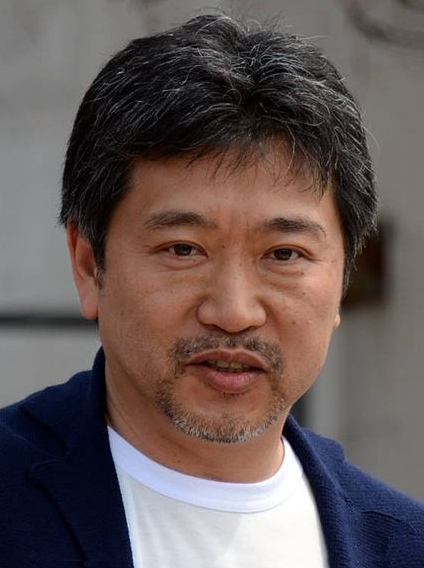1.Prologue
For the second installment in my series of columns about Japanese masters of cinema, I’d like to feature Kore-eda Hirokazu, who won the Palme d’Or earlier this year for his latest film at the 71st Cannes Film Festival.
2.About Kore-eda Hirokazu(1962-)
With Kore-eda lifting the Palm d’Or for his 2018 film Shoplifters, he has rightfully earned a place among Japan’s film greats. After graduating from Waseda University, he joined TV production company TV Man Union. In the 90s, he started producing documentary programs focusing on socially-conscious themes and the everyday lives of regular people, which largely shaped the direction of the films he would go on to make. He made his directorial debut with Maborosi (1995), which won a Golden Osella Award for Best Director at the 52nd Venice Film Festival. His films often deal with the lives of children and familial bonds, and he has a reputation for drawing memorable performances out of child actors.
3.Nobody Knows (2004)
After being abandoned by their mother, four young siblings must cope with the aftermath and rapidly deteriorating living conditions. This is Kore-eda’s exploration of the state of the family unit in modern Japanese society. The four siblings were all played by first-time actors, and Kore-eda went to great lengths to draw out natural performances, including telling the young actors as little as possible about their characters and experimenting with fixed camera positions. Lead actor Yuya Yagira became the first Japanese person to win Best Actor at the 2004 Cannes Film Festival.
4.Still Walking(2006)
One summer day, an elderly couple’s second-born son brings his family to visit his childhood home. But what seems like just another day... The nature of the occasion is gradually revealed to great effect. The themes of familial relationships and generational differences evokes Tokyo Story, as do the minimal camera movements and low, knee-high position. The Ozu Yasujiro influences are especially strong here. The film was inspired by the memory of Kore-eda’s own mother.
5.Like Father, Like Son (2013)
One day, a husband and wife are asked to come in to the hospital for something important, and they learn that their son was switched at birth with another. The plot is pure melodrama, but Fukuyama Masaharu has received high praise for his portrayal of the protagonist’s struggle with what it means to be a father. The film reportedly received a roughly 10-minute standing ovation after it was shown at the 66th Cannes Film Festival, and won the Jury Prize. Side note, apparently there is a Hollywood remake in the works, because of course there is.
6.Our Little Sister (2015年)
This is the film adaptation of a manga by Yoshida Akimi. When three sisters learn that their absentee father, who has been out of their lives for 15 years, has passed away, they decide to attend the funeral. There they meet the little sister from another mother that they didn’t know they had. The eldest daughter asks her if she’d like to live with them at their house in Kamakura, and thus begins their new arrangement. The four sisters gradually deepen their bond as they experience the trials of everyday life.
7.Shoplifters (2018年)
This film depicts a family on the margins of society, where father and son resort to shoplifting so that the family can get by. The central theme is about the state of families in modern Japanese society. Kore-eda won the Palme d’Or at the 71st Cannes Festival, the first director to do so in 21 years after Imamura Shohei for Unagi.
8.Epilogue
There are many criticisms that could be leveled at the Academy Awards, but the quality of its selections has remained consistently excellent. If you ask me, the Oscars, along with the Grammys, are one of American culture’s greatest legacies.
On the other hand, Japanese film awards and music awards are half-baked and practically unwatchable.
Generally speaking, Americans will acknowledge and respect quality for what it is. Japanese, on the other hand, tend to be all too eager to nitpick.
I believe this is because the Japanese do not understand the difference between critique and criticism. Japanese “intellectuals" see the act of spotting flaws and dishing out criticism as an intellectual pursuit (the same can be said about the country’s leftists). At its heart, to critique a work of art is to assess and lay out its worth. It is the way a critic puts forth their philosophies through the works of others.
The Oscars and the Grammys have long been about recognizing and reckoning with truly great works of art rather than deferring to an indicator as unsophisticated as how much money something made.
Critical efforts such as these are absolutely necessary if films and music are to possess cultural value. Unless great art and great artists are supported, culture and the arts will cease to develop.
Meanwhile, the Japanese content industry is only interested in selling easily marketable products over a short-term span. As a result, the scene is overflowing with the kind of easily dismissed films and music that can be thrown into the junk pile.
So it’s no surprise that talented Japanese who work in the film industry would want to work in the U.S., where a person can make a name for themselves based on their own merit. That goes for Tsuji Kazuhiro, who won an Academy Award for Best Makeup and Hairstyling in 2018, Eiko Ishioka, who won an Academy Award for Best Costume Design in 1993 (Eiko is also known for winning a Grammy Award for Best Album Package, for designing the cover of Miles Davis’s Tutu), and Wada Emi, who won an Academy Award for Best Costume Design in 1985. Though they may not be widely known in their native Japan, they are film industry professionals with a worldwide reputation for doing good work.
Still, in recent years, the film industry in the U.S. has gravitated more and more toward franchises and film adaptations of games and comics.
Meanwhile, in Europe, the industry continues to produce films for discerning adults, and those are also the types of films that are recognized at the “big three" film festivals: Cannes, Berlin, and Venice.
In Europe, watching films is for cultured individuals.
In movie theaters in places like Paris and Rome you can expect to find discerning adults to be watching films even during standard weekday work hours. In London, many ladies and gents will take in a late show with their date on a Friday evening.
And what about the film industry back in Japan? Take a look at a list of the top grossing films ever in Japan, and you’ll find mostly anime, kids’ films, and projects produced in conjunction with TV stations. A sorry state of affairs, truly.
This is not so much the fault of people making the films as it is an indicator of the way Japanese people live and work.
With lives centered on work and kids, people seem to completely lose touch with the kinds of hobbies and aesthetic pursuits that any discerning adult ought to have.
It sounds ridiculous to even have to say this, but for the Japanese, the remedy comes in the form of more weekday social outings after work—going out with friends and/or family to dinner, theater, the cinema, concerts, etc.
<highest-grossing films="" of="" all="" time="" in="" japan=""></highest-grossing>
Spirited Away
Titanic
Frozen
Your Name
Harry Potter and the Sorcerer’s Stone
Howl’s Moving Castle
Princess Mononoke
Bayside Shakedown 2
Harry Potter and the Chamber of Secrets
Avatar








